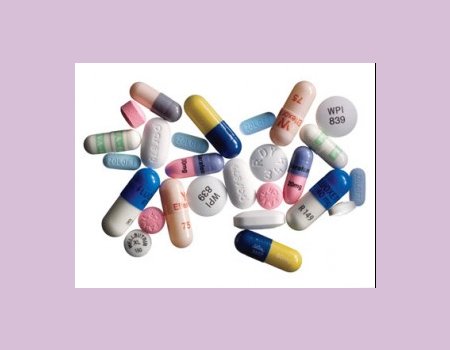1. Antidepressants Antidepressants are currently classified on the basis of their specificity on the reuptake of brain neurotransmitters. The therapeutic effects are as follows: are currently classified on the basis of their specificity on the reuptake of brain neurotransmitters. The therapeutic effects are as follows:
Elevation of mood, improved appetite and sleep patterns, increse physicl activity, improved clarity of thinking, better memory; decrease feelings of guilt, worthlessness, helplessness, inadequacy, decrease in delusional preoccupation and ambivalence. (p.2)
Classes:
A.
1. Selective Serotonin-Reuptake Inhibitors(SSRI) and these
include Fluoxetine (Prozac), Fluvoxamine (Luvox), Paroxetine (Paxil), Sertaline (Zoloft)
Indications for this medication include:
* Major Depression
* Prophylaxis of recurrent major depression(Unipolar affective disorder)
*Treatment of secondary depression in other mental illnesses, e.g. schizophrenia, dementia
*Depressed phase of Bipolar Affective Disorder
*Bulimia
*Obsessive-compulsive disorder (OCD)
*Panic disorder
*Dysthymia
*Atypical depression
*Agoraphobia associated with panic disorder, social phobia
*Aggression, impulsive behavior
(p.2-3)
2. Selective Dopamine-Reuptake Inhibitor (SDRI)
and these include bupropion (Wellbutrin) - also called amfebutamone, and bupropion sustained-release (Wellbutrin-SR, Zyban)
Indications for this medication are:
*Major depression
*Prophylaxis of recurrent major depression
*Depressed phase of Bipolar Affective Disorder
*Aid in smoking cessation(Zyban)
3. Selective Serotonin Norepinephrine Reuptake Inhibitor (SNRI) and this includes venlafaxine (Effexor)
Indications for this medication are:
*Major Depression
*Depressed phase of Bipolar Affective Disorder
*Preliminary data suggest efficacy in treatment-resistant depression and melancholic depression
*Preliminary studies suggest efficacy in obsessive compulsive disorder, panic disorder, social phobia, generalized anxiety disorder, premenstrual dysphoria, borderline personality disorder, and in children and adults with ADHD
*Anecdotal reports of efficacy in alleviating sexual dysfunction induced by SSRIs
4. Tricyclic (e.g. amitriptyline)
Dibenzoxazepine (e.g., amoxapine)
Tetracyclic (e.g., maprotiline)
Triazolopyridine (e.g., trazodone)
Phenylpiperazine (e.g., nefazodone)
Include:
maprotiline, desipramine, amitriptyline, clomipramine, trazodone, nefazodone
Indications for these medications are:
*Major depression
*Prophylaxis of recurrent major depression (unipolar affective disorder)
*Treatment of secondary depression in other mental illnesses (e.g., schizophrenia, dementia)
*Depressed phase of bipolar affective disorder
*Obsessive-compulsive disorder (clomiprane)
*Treatment of enuresis in children and adolescents (imipramine)
*Agoraphobia associated with panic disorder
*Efficacy in dysthymia reported (imipramine, desipramine, trazodone, nefazodone)
*Bulimia
*Efficacy against intrusive symptoms of posttraumatic stress disorder reported
*Attention deficit hyperactivity disorder not responsive to psychostimulants
*Used in autism for ritualistic behavior and aggression (clomipramine)
*Sedation for antidepressant-induced insomnia (trazodone)
*Premenstrual syndrome (clomipramine, nortriptyline, nefazodone)
*Erectile impotence (trazodone), premature ejaculation (clomipramine)
*Anti-ulcer effect (doxepin)
*Pain management, including migraine headache, diabetic neuropathy
*Trazodone reported to decrease disturbed behavior in patents with dementia
|




